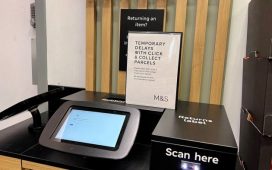Britain’s second biggest trade union is calling on the new Labour government to introduce an emergency 1% wealth tax on the assets of the super-rich to pay for 10% pay rises for public sector workers and fill more than 100,000 NHS vacancies.
The demand from Unite is in one of several motions to the Trades Union Congress, which meets in Brighton next month, that will expose tensions between Keir Starmer’s government and sections of the union movement. It comes as Rachel Reeves is preparing for her first budget as chancellor, on 30 October.
Labour MPs and ministers believe that the TUC conference could mark the moment when an effective truce between many unions and Labour – helping Starmer’s general election campaign – may begin to break down as the prime minister and Reeves double down on their commitment to fiscal responsibility and stress the need for hard choices if the economy is to be restored to health.
Other key trade unions are preparing to press for further policy changes from Labour, including abandoning the two-child benefit cap, which Starmer has so far resisted, and the reversal of the recent decision to end winter fuel payments for millions of pensioners, which has been causing a serious backlash among Labour backbenchers.
While Reeves is understood to be considering increases in capital gains and inheritance taxes in the budget, Unite’s motion to the TUC conference goes much further, saying that, with local authorities in financial peril, an urgently needed boost to public investment cannot wait for economic growth to materialise at an unspecified point in the future.
Unite’s plan is for a tax of 1% to be applied on the assets of those worth more than £4m, which it says would raise £25bn a year to fund investment in public services and avoid a return to austerity. Under the plan, someone with assets worth £6m would face a 1% tax on the £2m above the £4m threshold. These assets would include property, shares and bank accounts but would not include mortgaged property.
Unite points to research showing that the richest 50 families in the UK now have assets worth nearly £500bn.
Sharon Graham, the general secretary of Unite, said: “Unite’s resolution to the TUC on the economy calls things by their real name. The British economy is broken.
“Britain led the world’s first industrial revolution. But due to decades of underinvestment in manufacturing and national infrastructure, we are now falling disastrously behind other countries in the new technological age and the transition to net zero.
“We need serious investment in our crippled public services and in industry to ensure a prosperous future for Britain’s workers and their communities. We won’t get the money needed for that just by waiting for growth.”
Unite was a big donor to the Labour party in 2019 but did not contribute to this year’s election efforts, saying the election manifesto did not go far enough on protecting workers’ rights and jobs in the oil and gas industry.
The RMT transport union has also tabled a motion to the conference calling for a wealth tax to fund public investment, and the abandonment of what it describes as “unnecessarily restrictive and arbitrary fiscal rules” which limit the government’s ability to borrow.
A motion from the shop workers’ union, Usdaw, calls for an end to the two-child benefit cap, and an amendment to the same motion from the PCS civil service union calls on the TUC to “oppose cuts to the winter fuel allowance” and “demands appropriate taxation of corporations and the super-rich to fund the social security improvements identified in this motion”.
The TUC is also expected to press for “pay restoration” to make up for a decade of real-terms salary cuts for public sector workers.
Such demands will further add to the strains between Labour and its union backers after a series of pay deals between the Starmer-led government and striking workers in sectors ranging from healthcare to the railways.











